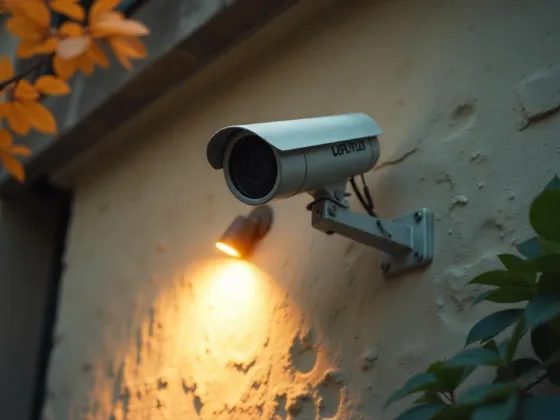Table of Contents Show
Worker efficiency is a crucial factor in the construction industry, impacting project timelines, costs, and overall success.

Optimizing the performance and productivity of construction workers is essential for any company aiming to remain competitive and achieve consistent growth.
Let’s explore some strategies that can significantly improve worker efficiency on construction sites, from fostering a safe work environment to providing comfortable accommodations for remote workers.
Prioritize Worker Safety
Worker safety must be the top focus for every construction project. When workers feel safe and protected, they are more inclined to perform their tasks effectively and with confidence.
Delivering proper safety training, establishing strict safety protocols, and providing suitable personal protective equipment (PPE) are vital steps in maintaining a secure work environment.
Additionally, it is essential to frequently evaluate and update safety measures in response to changes in technology, regulations, and project-specific hazards. By cultivating a safety-conscious culture where employees feel encouraged to report potential dangers and participate in safety initiatives, companies can reduce accidents and interruptions, leading to heightened efficiency and productivity.
Ensure Comfortable Living Spaces for Remote Workers
For construction projects in remote locations, providing comfortable accommodations, such as an oilfield man camp, is crucial for maintaining worker efficiency. These temporary housing solutions offer employees a safe and comfortable environment where they can rest and recharge after a long day at work.
Companies can promote overall well-being, employee satisfaction, and, ultimately, enhanced productivity by ensuring that workers have access to clean, well-maintained, and adequately equipped living spaces.
Investing in quality accommodations for remote workers demonstrates a company’s commitment to employee welfare and can contribute to improved worker retention and loyalty.
Read Also:
Provide Adequate Training and Skill Development
A well-trained workforce is the cornerstone of an efficient construction project. Providing comprehensive training in both technical and soft skills is essential to ensure that employees have the knowledge and expertise required to perform their jobs effectively.
Regular skill development programs should be implemented to keep workers up-to-date with industry advancements and best practices. Furthermore, offering continuous learning opportunities can enhance employee engagement and loyalty, leading to a more dedicated and motivated workforce.
Companies should consider providing access to workshops, seminars, and online courses to support the professional growth of their employees and ultimately improve worker efficiency.
Implement Effective Communication
Clear and effective communication is crucial for the smooth operation of any construction project. Misunderstandings and miscommunications can lead to costly delays, errors, and conflicts.
Establishing a robust communication system that allows for timely and accurate information exchange among team members is essential to prevent these issues.
This can be achieved through regular team meetings, progress reports, and the implementation of project management software that facilitates real-time communication and collaboration.
Encouraging open dialogue and feedback among team members can also contribute to better decision-making and problem-solving, leading to increased worker efficiency.
Utilize Modern Technology and Equipment
Integrating advanced tools and equipment into construction processes can significantly enhance worker efficiency. Modern technology, such as building information modeling (BIM), drones, and construction management software, can streamline workflows, improve accuracy, and reduce the likelihood of errors.
By providing workers with access to cutting-edge equipment and machinery, companies can minimize the time and effort required to complete tasks, boosting overall productivity.
Training employees in the proper use and maintenance of these tools is also essential to ensure that they can take full advantage of the benefits offered by technological advancements.
Establish Realistic Goals and Deadlines
Setting achievable targets and deadlines is fundamental to maintaining a high level of worker efficiency. Unrealistic goals can lead to frustration and burnout, while achievable objectives serve to motivate and inspire employees to perform at their best.
By carefully assessing project requirements and resource availability, companies can establish deadlines that are challenging yet attainable. Involving team members in the goal-setting process can also contribute to improved efficiency, as employees are more likely to be committed to targets they have helped to define.
Regularly reviewing and adjusting goals in response to project progress and changing circumstances can help ensure that objectives remain relevant and achievable, promoting a continuous improvement mindset among the workforce.
Foster a Collaborative Work Environment
A positive and cooperative work environment is crucial for maximizing worker efficiency. Fostering teamwork and collaboration among employees can result in better problem-solving, enhanced creativity, and a more unified project team.
Companies should proactively encourage a collaborative culture by offering team-building activities, easing cross-functional communication, and celebrating the shared accomplishments of project teams.
Moreover, establishing an atmosphere where employees feel at ease sharing ideas, concerns, and feedback can lead to a more innovative and adaptive workforce. By appreciating and recognizing the contributions of all team members, companies can instill a sense of responsibility and dedication that ultimately enhances worker efficiency.
Offer Incentives and Recognition
Recognizing and rewarding outstanding performance can significantly impact worker motivation and efficiency. Incentive programs, such as bonuses, promotions, or other forms of recognition, can inspire employees to put forth their best effort and maintain high levels of productivity.
These incentives should be closely aligned with company goals and objectives, ensuring that they reinforce desired behaviors and outcomes. In addition to financial rewards, non-monetary forms of recognition, such as public acknowledgment, additional training opportunities, or flexible work arrangements, can also be effective in boosting employee morale and engagement.
By regularly celebrating the achievements and contributions of individual workers and teams, companies can cultivate a high-performance culture that drives continuous improvement and exceptional results.
Monitor and Evaluate Worker Performance
Regularly monitoring and evaluating employee performance is essential for identifying areas for improvement and implementing necessary adjustments.
By tracking key performance indicators (KPIs) and soliciting feedback from team members, companies can gain valuable insights into worker efficiency and overall project progress.
Performance evaluations should be conducted constructively and supportive, focusing on identifying opportunities for growth and development. Providing employees with specific, actionable feedback can help them understand their strengths and areas for improvement, empowering them to take ownership of their performance and strive for continuous improvement.
Conclusion
Enhancing worker efficiency on construction sites is critical for the success of any project. Companies can significantly boost worker productivity and overall project performance by emphasizing safety, offering adequate training and development opportunities, cultivating effective communication and collaboration, using modern technology and equipment, and applying the above outlined above. Investing in worker efficiency not only leads to better outcomes for the company but also fosters a more engaged, motivated, and content workforce.









